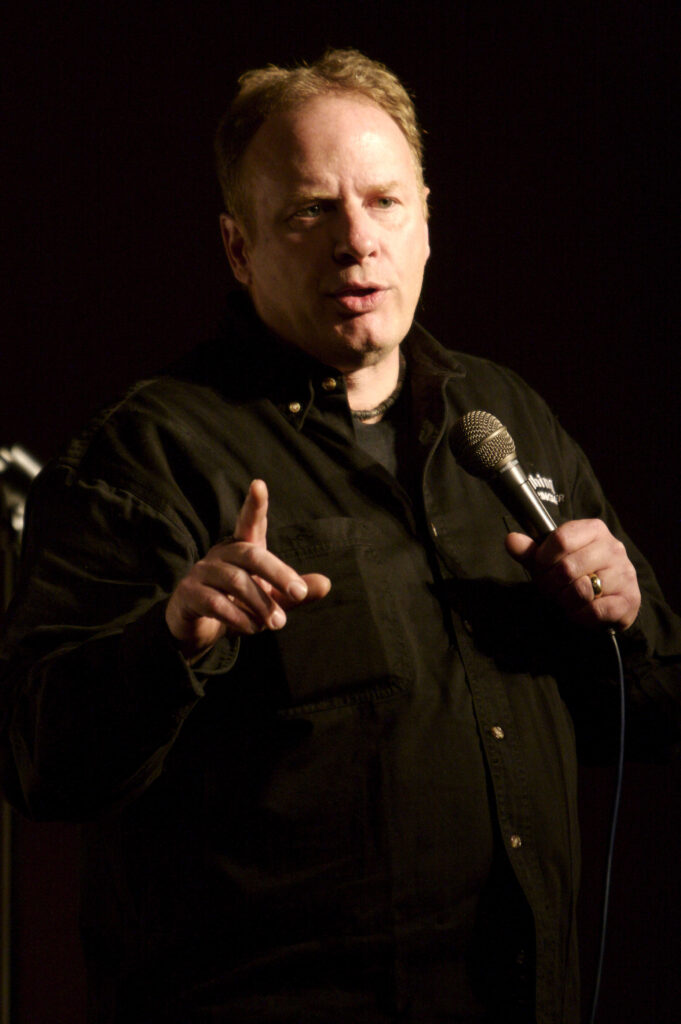“I found the experience rather educational despite my displeasure, though I’m not likely to attend another comedy show in the future.”

Review by Cassandra Wong
The Edmonton Comedy Festival celebrates 11 years of comedy shows this year, with a diverse lineup of live comedians over the course of four days and four different locations across the city. The festival is sponsored by leading companies such as ATB Financial and EPCOR, and all proceeds from tickets are given to the performers.
The show I chose to attend, Media Challenge, featured a line-up of nine Edmonton social media personalities who applied to perform a short set and compete for a trophy: Eileen Bell, Jenna Winterburn, Nahreman Issa, Trent Wilkie, Lisa Evans, Ryder, Courtney Theriault, Jeff Holland and Nancy Carlson. The show was headlined and hosted by comedian Andrew Grose, who also happens to be the producer of the festival.
I figured that with my minimal knowledge of comedy and my more extensive understanding of social media trends, maybe the show would be a good way to dip my toes in the water.
The ATB Arts Barn Westbury Theatre presented a much cozier atmosphere than I was expecting. Contrary to the grandeur of an auditorium, I found myself in a more dinner theatre-esque setting on the evening of October 13. The stage was framed by crimson curtains and a projection of the ATB logo on the wall. In hindsight, the decor was rather fitting for the purpose of the event, though it did little to ease my frustration at the comedians’ sets.
As someone whose knowledge of comedy is limited to Instagram screencaps of John Mulaney and Bo Burnham shows, perhaps my expectations for this comedy show were too unrealistic. I had a hard time enjoying the content of the performances and, truth be told, I found many of the jokes crossed the paper-thin line between humour and offense.
The job of comedians is to constantly challenge boundaries and provoke the audience with their content, but many completely disregard those boundaries, as evidenced by controversy surrounding more well-known comedians such as Daniel Tosh, Frankie Boyle and Doug Stanhope. Quite frankly, I didn’t quite know what to make of this show: was I too sensitive, or were they just doing their jobs? It was easy to see the difference between the world of comedy and the world that I, and my friends, know of; the nature of many jokes would be considered wildly inconsiderate by my acquaintances.
Grose’s content was the least enjoyable part of the show, despite the fact that comedy was his entire career. Even the warm-up was incredibly questionable: he veered dangerously close to the topic of ableism and how disabled individuals are held to much lower expectations. Some of his material bordered on infantilization, such as joking about having a leg amputated and getting a wheelchair so others would judge his everyday activities less.

I could not believe what I was hearing—he wished to be disabled for the benefits?
Following that, he accused healthcare providers of doing nothing but sitting around, despite the fact that they have been stretched thin due to the pandemic. Much later on in the show, he also complained about his wife’s menopause and the difficulties he has with it, all while his wife was sitting in front of him on the judging panel.
As if that wasn’t enough, he then talked about his experience in a plus size lingerie store with a salesperson: a big girl befitting the store, who moved very quickly for her size. Though the salesperson only tried to help by asking if his wife’s breasts were the same size as hers, Grose ignored the goodwill and responded with, “Yes, but they don’t start at the waist”.
I’m wildly unsettled by this misogynistic storytelling. First to prioritize yourself over your wife, who, might I remind you, is sitting right in front of you and struggling through menopause. Then to claim that men are blameless because they are oblivious, in a society where women are treated as oversensitive and incompetent compared to their male counterparts. I can’t quite determine whether the misogyny in his comments are sincere, or if this is a character he plays for the job.
I firmly believe that Gen-Z has moved society many steps closer to acceptance and inclusivity. I felt as if that was being belittled throughout the show, especially by many of the male performers who made comments about bullying and how sensitive this generation is. It was ironic, actually, to see so clearly the difference between the male and female comedians who performed: the men leaned towards jokes that derived their humour at the expense of other people, whereas the women tended to make more self-deprecating jokes.
Additionally, the pandemic has certainly provided comedians with a surge of new material, but it felt as if those I saw relied on that content as a crutch. Though the delivery wasn’t identical, I saw the same jokes about anti-vaxxers and the mask mandates in most of the sets. Unsurprisingly, they became less humorous as the night went on.
Personally, I wasn’t quite satisfied with the way the night ended. I would’ve liked to know more about the criterion, or rubric, that the judging panel used, as I didn’t think the winner, Ryder, had the most comedic set (he was the most offensive with his humour).
This brings me to the question: how much controversy is too much, and where are the boundaries for comedy? That being said, I found the experience rather educational despite my displeasure, though I’m not likely to attend another comedy show in the future.
Edmonton Comedy Festival website

